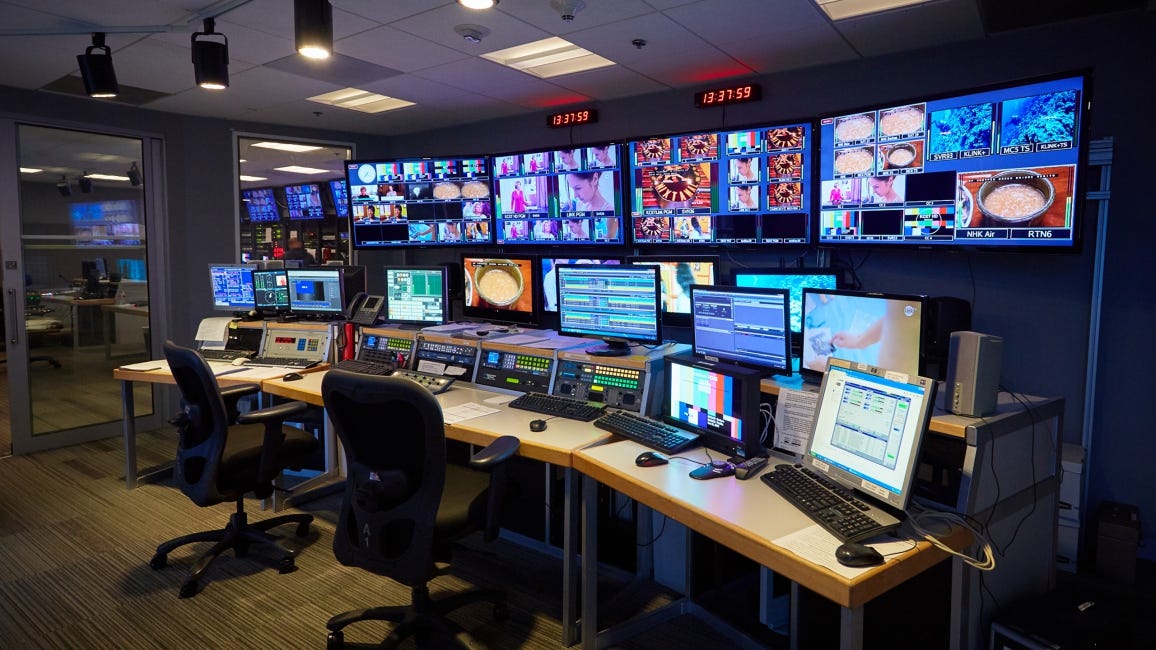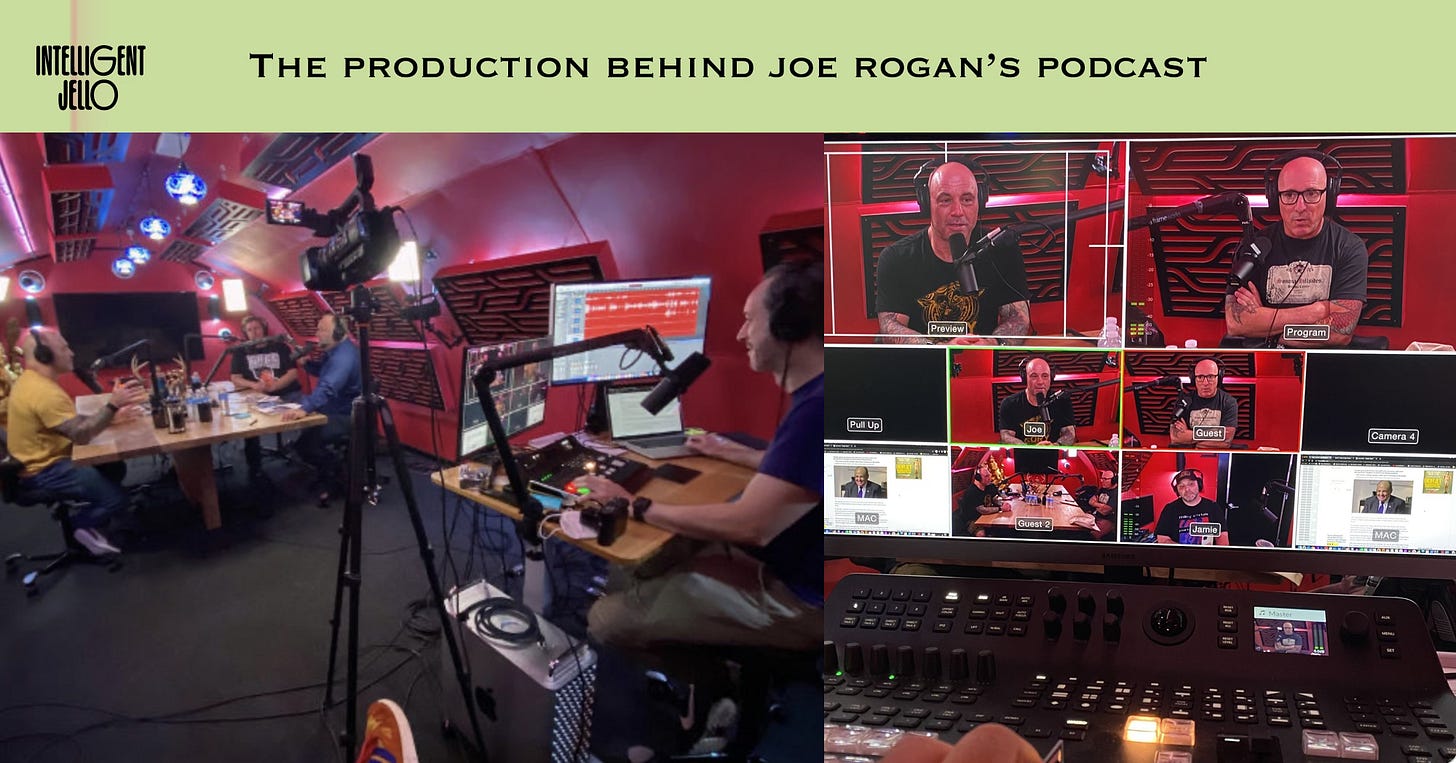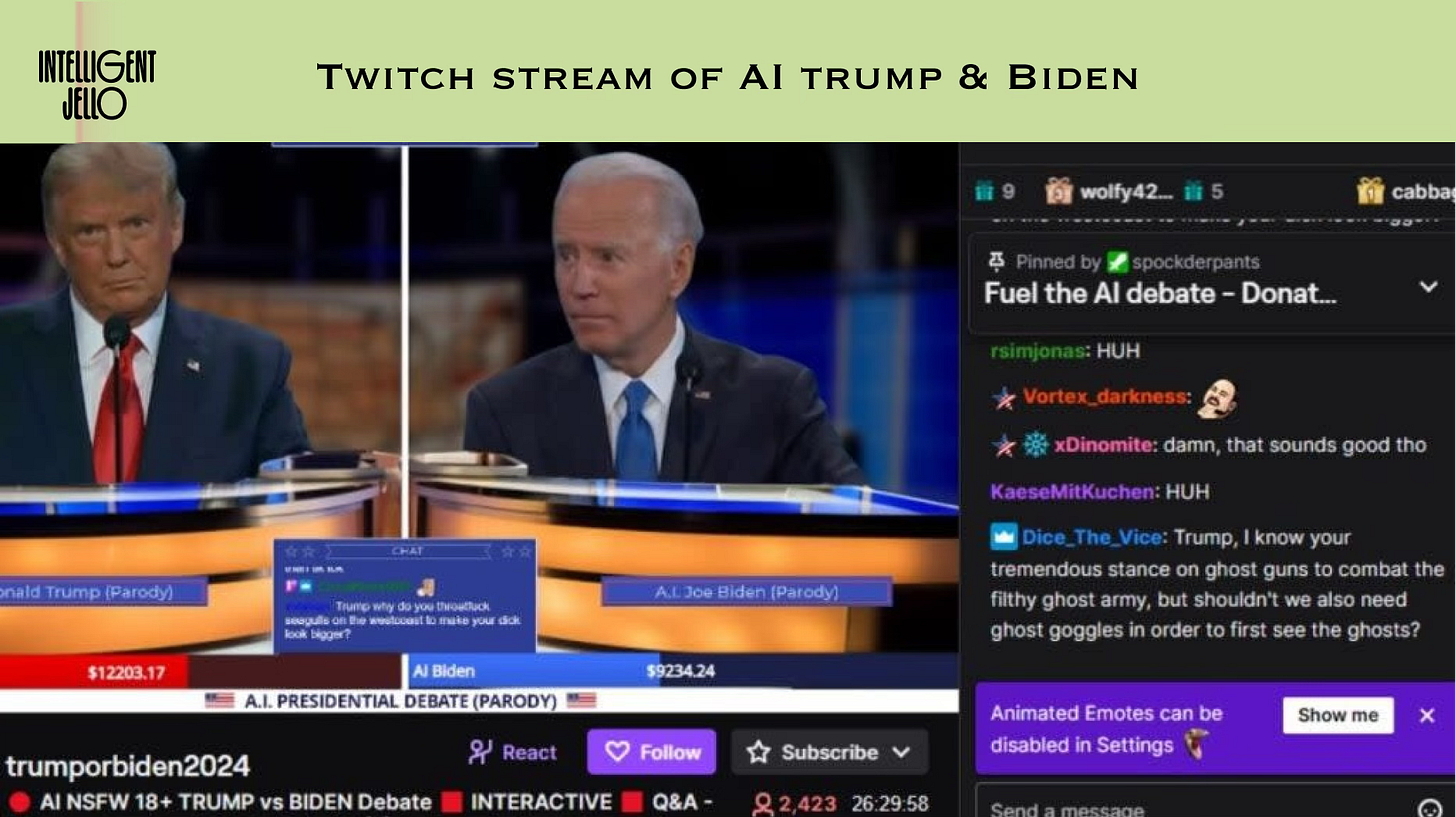Newsroom job loss & art-washing
Four stories about AI film the author failed to tie into a larger piece
For the last year I’ve lived in a small room above my AI company’s office. So small, that I unscrewed the closet door from its hinges to create ‘more of my room’. And inside that closet I made a small study. This is where my previously mentioned writing chair was. Quite literally in a windowless closet.
I finally moved out of the office and now, like a normal person, live in an overpriced apartment by myself. As a consequence, I am finding more time to write. I also write by a window now. If the reader notices a subtle change to the column, the likely culprit is this window.
I expect to write my longer essays and a few of whatever this is— a rundown of several news items. This one is called ‘Loose Ends' but if you have a better term, you may make a suggestion which will be assessed by the Intelligent Jello braintrust. And no, Jello Snack Pack is neither a name we will consider nor in any way entertain.
Without further ado, here are four loose ends that I have failed to tie into larger pieces.
News crew gets automated away
A local newsroom is allegedly replacing its entire crew with an AI system. The cameramen, audio recordists, graphics compositor, etc. will all be replaced with AI. Only a single manager will remain to oversee the system. Again, the story is alleged and not confirmed. It began as a reddit thread and has since been reported a few other places. I have not been able to fully verify it.
If it’s true, it’s one of the first examples of wholesale AI job loss in the film industry. And it’s not happening in a field we expected like pre-visualization. Rather it’s a live television crew.
Somehow I don’t fully buy it. You’d expect an example of AI automation like this to get named, shamed, and go viral on the internet. But it hasn’t. In fact, it’s hard to find many verifiable details beyond a few blogs. Which makes me think, shockingly, that you can’t trust every anonymous reddit thread you read. I’d still like to write about it though. I think it’s true, just not in the way Reddit thinks. So let’s treat it as at least a half-truth.
The discussion around this incident misunderstands it as unprecedented example of scary AI displacement. But when I looked into the scant specifics, it seems like a story of software automation, not AI automation. The reports mention a mysterious company called “Q ai”, which after some research I believe is actually a misnomer for Cuez, a software for live-show rundowns.
In the end, I think this is just a local newsroom catching up with their podcast/livestream counterparts. Talk show production has been getting simpler for a while now with cheaper cameras and better software. Many podcasts/YouTube channels with only 1-2 crew members make shows that are comparable to fully-crewed news stations. They do it with regular software, not AI.
Generative AI is coincidentally arriving at the same time as a lot of other pressures in the entertainment industry— strikes, distribution disruption, economic pressures, etc. The term “AI” gets thrown around a lot as a stand-in for anything digital. So just be aware of that as you see headlines like this.
Still it’s frightening to see a dozen jobs obliterated without a single new one added. The specifics of the culprit’s tech stack are unimportant to the displaced employees.
Optimists will say each one of the fired employees can now start their own news program, empowered by an AI news crew. It's a fair point, but it boggles the mind to picture an economy of single-person businesses. Though increasingly that’s the story we’re telling. The age of the solopreneur.
It’s still both poorly understood and explained how AI systems will create more jobs than they replace. We have only history to judge from— and since the beginning of history, technology has an unbroken streak of automating work but adding more jobs. It’s certainly a hard track record to debate. Somehow machine intelligence feels different to most people. This blogger included.
The AI Coca-Cola Commercial
Coca-Cola released an AI remake of a classic Christmas commercial, which is widely being panned as a major marketing misstep.
I actually saw the commercial a week before its release at a small screening for foreign media executives. I did not foresee the commercial’s controversy, but I did feel completely bored by it.
The AI remake was directed by Dave Clark, an established commercial director, nice man, and outspoken advocate of the "AI will democratize filmmaking" thing. He is also, possibly, the most celebrated filmmaker in the AI film community. In particular Dave is revered for the realism he’s able to achieve (a noticeable notch above others) and you constantly run into people who hold up Dave up as the exemplar artist
That’s all to say— the commercial is done as well as you can do these things today. So what’s the controversy? It’s a no-risks, well-done, 30-second generative remake of a classic commercial. Just… cheaper.
And that’s where the controversy is.
People get excited when an indie filmmaker can make a movie for less money. You can confidently exclaim “Yes, AI democratizes filmmaking!” It’s a little less cool when a $250-billion beverage corporation does the same thing. Then it feels like a story of cost-cutting.
Beyond the economics, it feels uninspiring to use AI to impressively mimic something someone else did. In that light, the commercial seems like a bad advertisement for AI. Not because it didn’t employ enough people. But because it doesn’t do anything new. It just recreates something old.
I’m not criticizing Dave Clark or Coca-Cola. I think they’re both just experimenting. I do think it’s a lesson in how we can anticipate public reaction to generative video in the future. As a rule, audiences will probably dislike AI videos (known to be AI) that try really hard not to look AI-generated. That try to blend in as normal media. Especially when created by monied interests. That may change with time, but for now it’s status quo. When viewers know a video is AI, it feels deceptive and cheap to them. And for the moment, they also feel strangely limp.
About a year ago, Coca-Cola did a different AI commercial in an art museum that was quite fantastic in a literal sense. I'm eager to see more stuff like that.
Something Legitimately New
As discussed above, many people are focused on applying generative AI to existing forms. They want to do the same thing as before, just with AI.
That approach will certainly be popular, and will probably become very lucrative in economically pressured systems like advertising, training videos, etc.
But it won’t be as compelling in arts and entertainment.
Clearly generative AI will engender totally new forms and mediums. Ignoring that is like a live theater company in 1920 wondering how film will be used in theater productions.
I’m always looking for the novel stuff that sits outside familiar mediums. And I recently found an old livestream called TrumpOrBiden 2024. It was an infinite livestream generated on the fly, featuring an AI Donald Trump and AI Joe Biden trading petty insults. Forever.
Viewers could influence the debate too as the avatars sometimes reacted to the livestream comments. And of course it was monetized. If you paid money, the presidents would work in your comment.
It doesn't take much imagination to see where this could go. Without particularly liking it or endorsing it, I’m certainly thinking about it a lot.
We’re edging in on very interesting territory here. In fact, I am preparing a piece that my poet friend refers to as “Notes on Neumorphic Media”. If you think that is a bad title, you are probably correct. But it will not dissuade me from writing it.
Sora Art-Washing
Since February, OpenAI’s video model Sora has been under super secret alpha testing. That month OpenAI released seven videos made by early Sora testers. These videos were very impressive at the time. People were floored.
In the ten months since, most of the other AI video companies (and several new ones) have released next generation video models too. They also impressed people. As a result, Sora is a little less cool now.
The super secret alpha testing is also less super-secret. OpenAI has brought in larger groups of hand-selected artists to test Sora.
And last week some of those artists leaked Sora online for free use (it was removed within hours).
The leak was accompanied by a post addressed ‘Dear Corporate AI Overlords’. I’ll include it in full below.
The idea of OpenAI using artists for free bug testing labor is false. They have more money than God and a dedicated QA team. The sentiment behind the note is not.
Early access programs are completely voluntary. Most AI companies have them. In my opinion, programs like these are very good and very important to positive outcomes. I know tons of artists who participate in them. And typically, artists are very excited to test models and shape the product with feedback.
But this excitement is where it gets murky.
Let’s pull out from the Sora incident and just talk about AI art. Everyone (especially artists) is anxious about it. AI got really good, really fast and no one is ready. People react to it one of three ways: ignoring it, fighting it, or leaning into it.
Ignoring it is easy. That’s most people’s reaction. Fighting is easy too. It’s natural. Leaning in is a little more complicated. As always in the interplay of art and commerce, there’s some reputational laundering going in this category. To be part of the future, you need to talk positively about it. Embrace it.
The exchange is not explicit, of course. But if the cool kids let you to sit at their lunch table, you’re not going to badmouth them later. You perpetuate the myth of their coolness.
It’s no secret that many artists dislike, fear, and vocally denounce AI technology. And it’s no secret that there are big rooms where artists talk about how much they love AI technology and receive well-compensated gigs as an indirect result. But perhaps a little bit of a secret is that there is a professional expediency behind both positions— being an Anti-AI guy or being an AI-forward guy. In either room, there are none to decline your nectared wine.
And just to belabor the point, none of this is being done in explicitly.
These are just the emotional aquifers welling underneath the scene. They bubble up in odd ways.
Returning to the Sora incident, the leak is a relatively small news story. But it’s an interesting example of what we’ll probably see more and more.
There are strange feelings around this technology.
Expect them to get only stranger. And to come out in weirder ways.
One more thing
I’ve enabled paid subscriptions in my Substack. It’s just a way to support me to write more. I don’t expect to put anything substantial behind a subscriber wall. Just largely unserious tidbits.
In this column for example, below the paywall is a 200-word anecdote of an odd idea someone pitched me for personalized AI spokesmen.
If that sounds un-interesting, you shouldn’t think twice about missing it.
This one starts with Billy Mays…
The Infinite Billy Mays
Keep reading with a 7-day free trial
Subscribe to Intelligent Jello to keep reading this post and get 7 days of free access to the full post archives.






